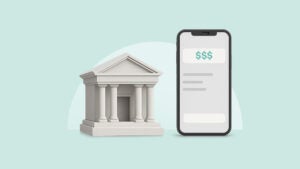Bank account bonuses: The good and the bad




Switching banks can pay off.
If you choose wisely, it could make your financial life more convenient and even help you save on fees. What’s more, it can also quite literally pay off with one of the top bank account bonuses available.
Bank account bonuses are a promotion some banks offer to encourage you to open an account. These bonuses tend to range from around $100 to $3,000, depending on a number of factors, including the amount of your initial deposit. They’re usually a good thing. But they may have some downsides associated with them, too.
So let’s explore both the good and bad elements of these bonuses before making any moves on where you want to keep your money.
The good
1. More money in your pocket
Bank account bonuses can be a great way to earn money in a low-yield environment. Or they can be a great way to earn even more money in a higher-rate environment, like we’re in now.
2. An incentive to bank elsewhere
Sometimes you don’t know how much better a product or customer experience is until you try it. Getting the chance to try a new bank, and get paid to do it, could be a win-win situation. You might find its app to be more useful, its ATMs to be more convenient or its features to be better than your existing bank.
On average, U.S. adults keep the same primary checking account for more than 19 years at banks or credit unions with brick-and-mortar locations, according to Bankrate’s latest Checking Account Survey.
Think about how much things have changed in that time period. Mobile apps have been developed, your original bank might have been merged into another, online banking has become more sophisticated and customers can now make transactions with the benefit of mobile deposits. Some online-only banks, such as Bask Bank and Jenius Bank, didn’t exist 19 years ago.
Consumers are often in long-term relationships with their bank. So, it’s a good idea to pursue a bank account bonus at a financial institution that you want to bank at for the foreseeable future, since it can be a hassle to monitor too many accounts or close accounts. If it’s time to quit your long-term relationship with your bank, read Bankrate’s guide on how to break up with your bank.
3. A way to earn even more — especially if you’re at a low-yielding bank
It might not be accurate to compare interest earned in a year through compounding to receiving a bank account bonus as a lump sum earned in the near future. But the bottom line is a bank account bonus is more money in your pocket. Finding new ways to earn some extra cash is always welcome — especially as economists predict a 35 percent chance of a recession in the next 12 months, according to Bankrate’s Economic Indicator Poll.
4. The possibility of reducing or eliminating fees
Those incurring overdraft fees and monthly service fees could benefit by having fewer accounts. Assuming you’ll have a large enough balance to avoid fees, since your money won’t be spread around different banks, you could use a bank account bonus to start banking elsewhere. It’s always a good idea to not immediately close a bank account where you have a direct deposit or bills being paid out of, until you have a chance to change over that information and the banks have a chance to process the change.
5. A bank account bonus is usually fixed
Other than an introductory APY or a promotional rate, savings yields are usually variable. A bonus, on the other hand, tends to be fixed. Generally, following the rules and guidelines and keeping your account open for a certain period of time will help you earn the bonus for opening your account. Banks may have wording that the offer is subject to change, but they usually pay the amount in the offer if all of the criteria have been met.
The bad
1. Tax consequences
In most cases, people should expect to get a 1099-INT issued to them for the bank account bonus, says Rachel Ivanovich, enrolled agent, tax strategist and wealth advisor at WWM Financial in Carlsbad, Calif. This means the bonus is added to your taxable income and taxed as ordinary income.
Ivanovich says you’ll probably get a 1099-INT if the bonus is over $10, or the bonus might show up on a 1099-MISC. Some people in higher tax brackets may also have to pay a Net Investment Income Tax on their bank account bonus, Ivanovich adds.
2. The stipulations
Not knowing the terms of the offer, and failing to follow them, could stop you from receiving your bank account bonus.
“It’s imperative to make sure that anyone considering an account bonus understands the boxes they need to check in order to receive that bonus,” says Andy Mardock, certified financial planner, founder and president at ViviFi Planning in Bend, Ore. “That is crucial.”
Common stipulations are:
- Keeping an account open for a certain period.
- Receiving a minimum direct deposit.
- Never having an account at a bank. Or not having an account at a bank for a certain period.
- A new money requirement — meaning money deposited into the account needs to come from outside of the bank.
3. You might not want to switch banks
Changing every bill payment to your new bank might not be something you want to do. Not strategizing how you change your direct deposit — by closing your old account too early — may also result in a delay of getting your money.
Convenience is the top thing that Mardock says his clients value in a bank.
“And then I find that interest rates are, or bonuses in this case, are a secondary consideration to that,” Mardock says.
4. You might want to limit the number of accounts you have
Bank account bonuses can be a great way to earn some additional money. But each account you add comes with more responsibilities. It’s important to regularly monitor your accounts. The more accounts you have, the harder it is to keep track of them all.
5. Watch the yield after the bonus
Bank account bonuses can be exciting to earn. But once the bonus is deposited into your account, you need to focus on what your money is earning. Bankrate’s national average savings account yield is 0.6 percent APY, as of February 08, 2026.
But the highest-yielding savings accounts are paying more than 4 percent APY. Compare rates on Bankrate to find the right account for you.
Why we ask for feedback Your feedback helps us improve our content and services. It takes less than a minute to complete.
Your responses are anonymous and will only be used for improving our website.




